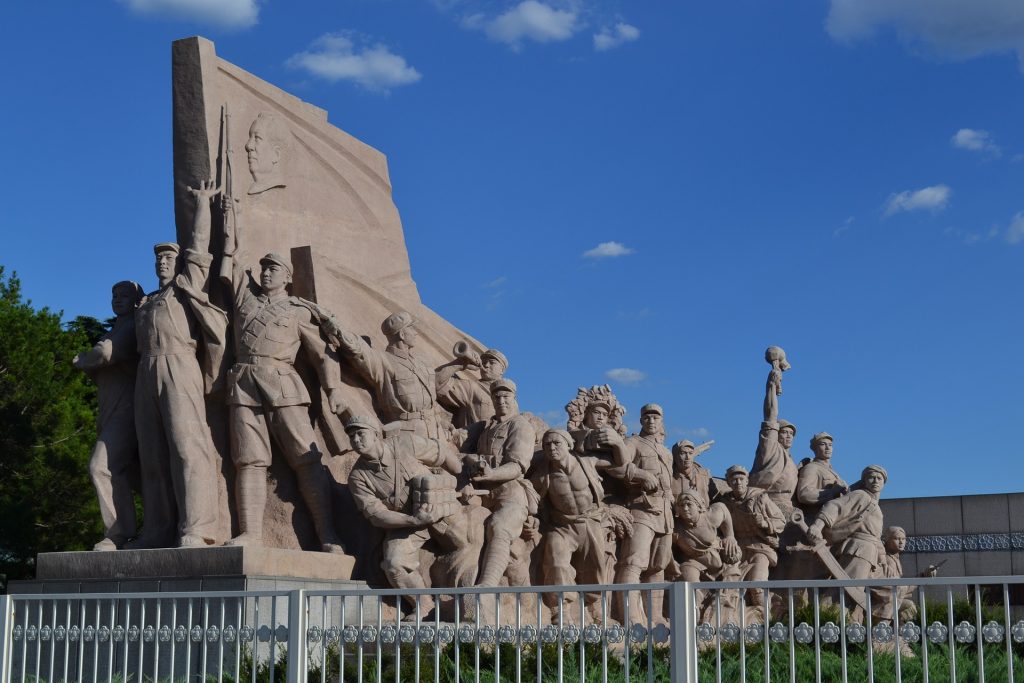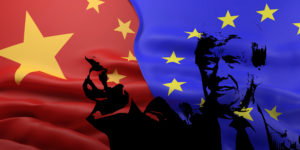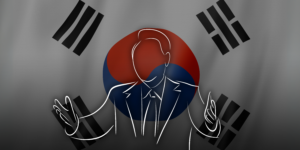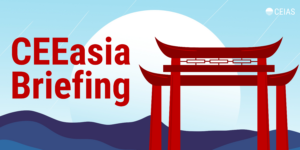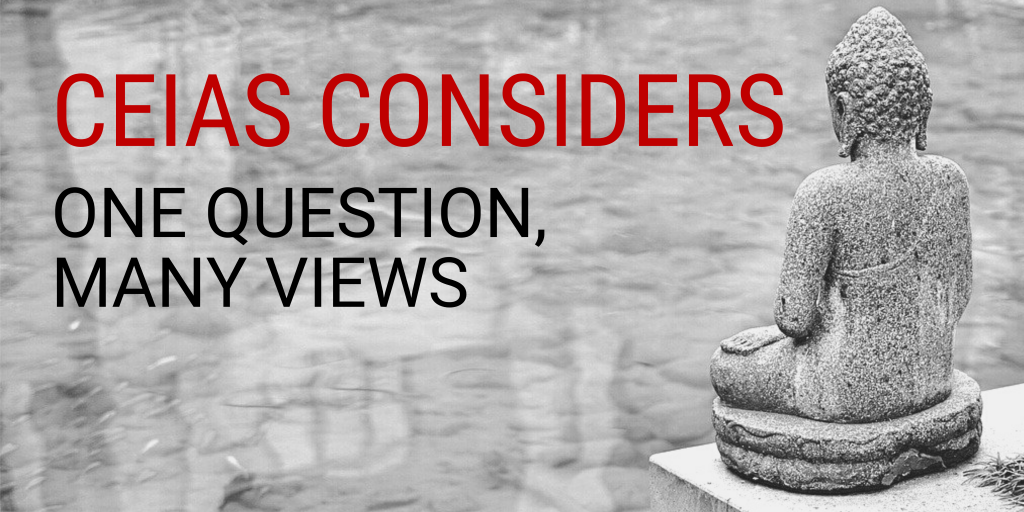
What to expect from China in 2022, from domestic politics to foreign affairs.
This year is a big one for the Chinese Communist Party. It will play host to the Winter Olympics in February, an event that many Western countries will boycott diplomatically, raising the narrative about the Chinese government’s human rights abuses, while the Communist Party National Congress is set to take place in the autumn. Will China’s international image continue to deteriorate? Will domestic concerns, from economic frailties to intra-party wrangling, take precedence over global affairs? Can China continue with its “zero-covid” policy throughout the year?
CEIAS Considers spoke to China experts from the CEE region to find out what they think 2022 will mean for the People’s Republic.
 Klára Dubravčíková
Klára Dubravčíková
Research Fellow at CEIAS
China is awaiting quite a few big moments in 2022 and its main goal will be to prevent any signs of instability that could affect the government’s perception by the domestic audience. The mission is already on – as the Winter Olympics are approaching, China has been facing not only calls for a diplomatic boycott by the Western governments with regards to the human rights abuses and also the international concern over Peng Shuai, but also the danger of a sudden surge in COVID-19 cases.
The diplomatic boycotts are by no means helping with China’s declining international image that has arguably reached its lowest points in many countries. However, they might be less of an issue – Beijing can easily fit them into its frequently repeated narrative of “hostility” and oppression by the West. On the other hand, the deepening outbreak of COVID-19 in Xi’an seems to be more difficult to deal with. Some of the world’s strictest measures to tackle its spread have been reinforced and amid this recurrent experience from two years ago, China might remain closed off for a longer period, making any engagement with the country continuously difficult.
China is, nevertheless, likely to stay focused on the task of maintaining inner stability rather than putting energy into repairing its international image – instead of a dramatic reform of the country’s policies or increase in efforts to actively seek opportunities to manage tensions and stave off escalations, we can expect to see the sustained manifestation of growing national strength, self-confidence, and pride. It does not mean that Beijing would not be willing to take part in open dialogues with Western countries but in the current setting is more likely to proceed with a more offensive strategy. After all, projecting power and defending one’s own interests and visions of the deserved rejuvenated status on the world stage, pushing for its own narratives will be especially important for the government domestically in the new year in which Xi Jinping is expected to secure a third term as party secretary.
Ivana Karásková
Founder and leader of China Observers in Central and Eastern Europe (CHOICE), China analyst at Association for International Affairs (AMO) and researcher at Faculty of Social Sciences, Charles University
It seems unlikely to expect China to behave less assertively in the international arena in 2022 than it did last year. The country is facing economic challenges, manifested, for instance, by uncertainty following the crackdown on technology and property companies, energy shortages, demographic challenges, etc. Given the reported limited efficacy of Chinese vaccines against the new omicron mutation of coronavirus, Chinese leadership may also face a serious problem of the potential rapid spread of infections. To fight against this, at least until the winter Olympic Games in Beijing in February are over, China would be forced to adhere to its zero-tolerance to outbreaks of the coronavirus which would in turn negatively influence already disrupted global supply chains.
Internationally, the situation is not favorable either, as the rivalry with the United States will likely carry on and the European Union will continue in its cautious approach towards Beijing. Of course, unless both sides resolve the question of sanctions imposed on EU parliamentarians, think tanks, and individuals.
At the same time, the domestic pressure on the Chinese leadership to deliver is mounting. Xi Jinping is preoccupied with positioning his allies to the key positions before the Chinese Communist Party Congress. Yet if anything goes wrong, he may be tempted to compensate for the country’s economic slowdown and divert the attention of the Chinese population from the frustration with his leadership to a more aggressive policy towards Taiwan. A military scenario cannot be ruled out as the incursions towards Taiwan’s air defense identification zone (ADIZ) already reached an unprecedented scale by the end of 2021.
Justyna Szczudlik
Deputy Head of Research, Head of Asia-Pacific Program and China Analyst with the Polish Institute of International Affairs
In 2022, Chinese politics will be domestic-oriented, while the foreign agenda will be less important. The reasons are two-fold: 1) the upcoming CPC Congress – the most significant political event in the PRC this year; 2) and two big domestic problems that are snowballing: a) economic b) and social. When it comes to the domestic dimension it is worth focusing on three phenomena.
First of all, one may observe an inward-looking approach. This means Xi Jinping’s focus on CPC personnel reshuffle to form a Xi-friendly coalition in order to secure his third term. There are ongoing significant changes of governors and party secretaries in provinces. What is more, the preparation for Congress is one of the reasons why Xi eschews traveling abroad. This is not only because of Covid. He must keep a watchful eye on processes within the party.
The second issue that merits attention is an arising problem with the youth. There is a growing outrage among young people due to their low living standards because of, let’s call it predatory capitalism with Chinese characteristics. In other words, despite their excessive efforts, which leads to fierce competition in education and in the labor market, their lives are harder than their parents’. This refers, for example, to “996 culture” – an overtime work, from 9 am to 9 pm six days a week and leads to 内卷 (neijuan) – an “involution”. Neijuan refers to chronic tiredness, feeling that at the end of the day the competition is vain and that life has no meaning. But at the same time, the youth are extending pressure on authorities to deal with inequalities, income gap, etc., with such examples as excessively rich people from big companies. Suffice to say that the recent deluge of regulations, mostly in cybersphere (including big-tech) but also such moves like a ban for for-profit tutoring, has one common denominator – young people. CPC is trying to show that cares for them. This is also an attempt to keep control to avoid youth uniting against the party. Why young generation may pose a threat to the CPC epitomizes the quotation by one of a netizen unhappy about the rectification of ‘fan circle’: “there are only about 2 million PLA soldiers and about 2.5 million policemen in China, but Wu [a pop-star accused of suspected rape] has 50 million followers on Weibo, we certainly could rescue him out of jail”.
The third domestic topic is a focus on self-reliance as an implementation of dual-circulation. The process means China’s incremental closing up as a way to deal with economic and social problems stemming from the aftermath of the Covid, ongoing decoupling, reshuffling within the value-chains, real-estate market problems, energy crackdown, etc. Also an uncontrolled and unlimited rise of Chinese companies (such as big-tech) and selected regions or provinces may become a centrifugal force that may pose a threat to the CPC. This leads to greater centralization and curbing any attempts for being less dependent on Beijing.
All the processes may mean that a spectacular shift in China’s foreign agenda, towards a softer approach, is unlikely. China will be still focusing on wolf-warrior diplomacy as a means of defending the country’s core interests that are under threat due to the very unfriendly international environment. This is a classical move when domestic problems are stockpiling. In short, Xi must be tough to underpin the theory of outside roots of the problems and show the society that he is not bowing to the foreign pressure.
At the same time, China will be trying to have better relations with its own “like-minded countries”, like Russia and those partners that present a rather moderate approach towards China or do not share US-China policy. Beijing may try to exploit tensions between the US and EU and use dependencies as leverage. The red line has been already crossed in the case of Lithuania …and Germany.
And finally, Beijing Winter Olympic will serve as an excellent and timely PR (that dovetails with the upcoming CPC Congress), mostly for domestic consumption: to satisfy national sentiments and as a vindication of leadership effectiveness. Diplomatic boycotts by several countries will not have any impact on the wider Chinese public.

